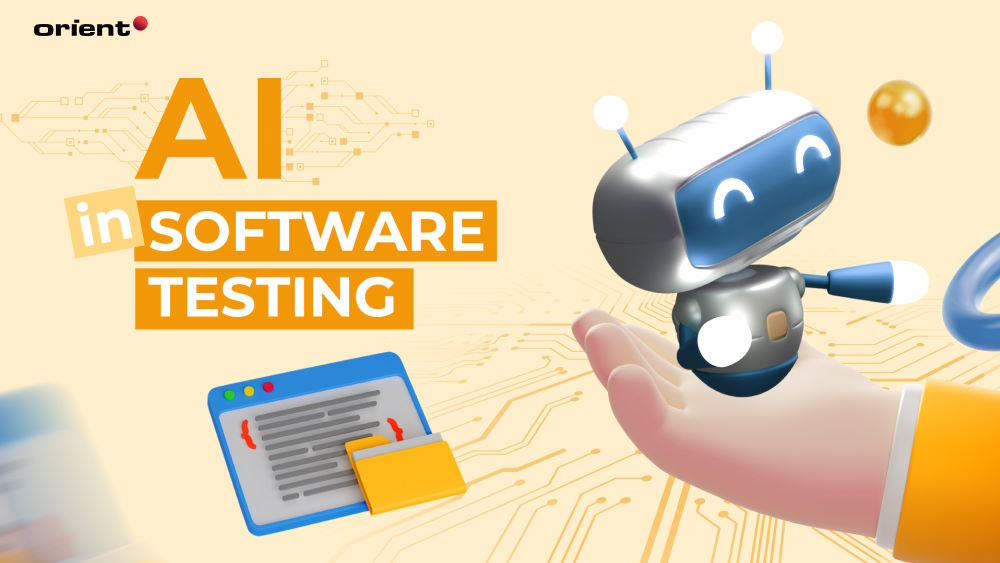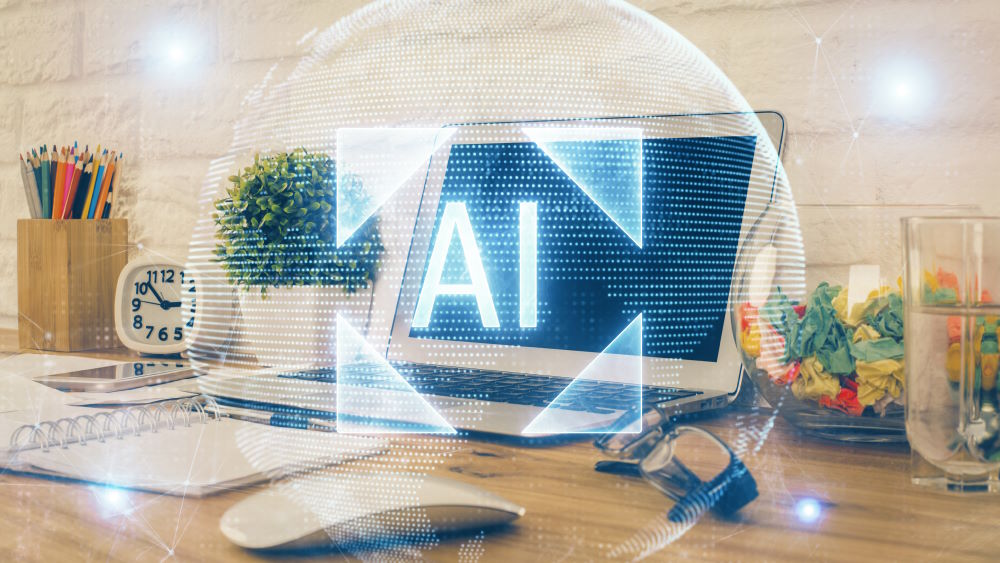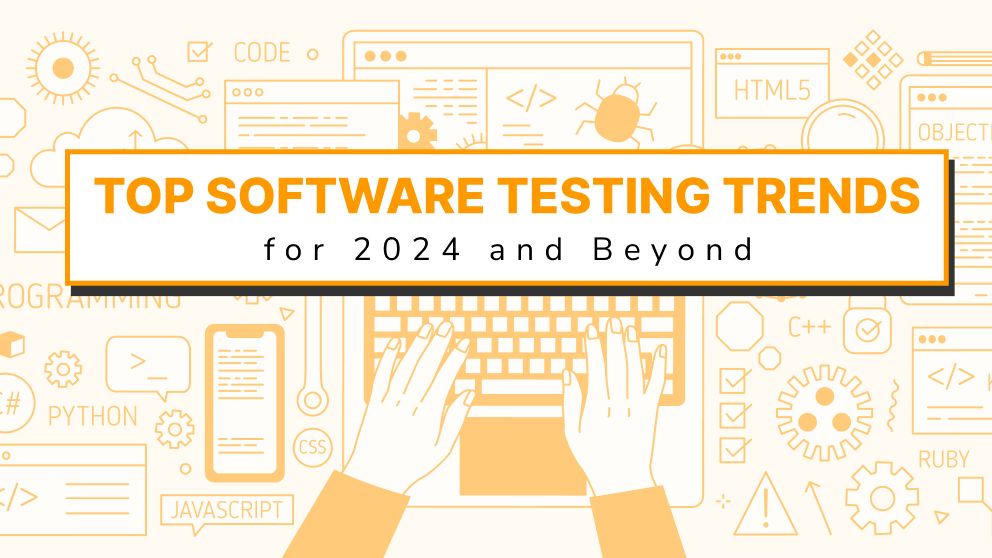
Examining the Challenges and Benefits of AI in Software Testing

Content Map
More chaptersAs technology continues to evolve at an unprecedented pace, the influence of artificial intelligence (AI) in various industries has become undeniable. One area where AI is making remarkable strides is in the field of software testing. With AI-powered automation, the possibilities for improving manual testing processes and ensuring software quality have become virtually limitless.
As organizations recognize the potential of AI in software testing, it becomes crucial to uncover the hidden benefits that this technology offers. However, it is equally important to acknowledge and address the challenges related to implementing AI in software testing processes. In this article, we will delve into the examination of both the challenges and benefits of AI in software testing, providing insights into how organizations can navigate this transformative landscape.
Understanding and harnessing the potential of AI in software testing is paramount for organizations seeking to optimize their testing processes, create test automation tools, deliver higher-quality software, and stay ahead in today’s competitive landscape.
What Do You Know About AI in Software Testing?
Artificial intelligence (AI) is a subfield of computer science that focuses on building intelligent computers capable of doing duties that would normally need human intelligence. When it comes to software testing, AI plays a vital role in automating and improving various aspects of the testing process.
Traditionally, software testing involves the manual execution of test cases to identify bugs and ensure the software meets the desired requirements. However, with the advent of AI, this process can be enhanced and streamlined by automated testing with AI.
There are several techniques and technologies commonly employed in AI software testing. Machine learning algorithms, including reinforcement learning, supervised learning, and unsupervised learning, are widely used to train models that can predict software failures, optimize user interface testing, classify test results, and identify patterns in large datasets.
Natural language processing (NLP), a subfield of AI, is also utilized for AI-powered testing tools to analyze natural language requirements, test cases, and other textual data. NLP enables intelligent processing of textual input, enabling better understanding and extraction of information critical for effective software testing.
Additionally, genetic algorithms (GAs) and search-based software testing (SBST) techniques leverage AI to optimize the generation and selection of test cases, prioritizing those that are most likely to discover defects or vulnerabilities in the software.
By utilizing these various AI techniques and technologies, organizations can elevate their software testing processes, achieving higher efficiency, improved accuracy, and enhanced overall software quality.
Unveiling the Benefits of AI in Software Testing

Benefit 1: Improved Test Coverage
One of the most significant benefits of applying AI in software testing is the ability to achieve improved test coverage. With AI algorithms, testers can generate an extremely high number of test cases that cover various scenarios and combinations. This ensures that different aspects of the software are subjected to a higher level of testing, reducing the likelihood of defects and enhancing the overall software quality.
For instance, AI-powered testing tools can automatically generate test data by analyzing requirements, use cases, and test scripts. This results in test cases that simulate real-world usage and cover various testing scenarios, providing comprehensive test coverage.
AI algorithms can also prioritize test cases based on the likelihood of finding defects. This ensures that critical testing scenarios are tested first, thereby preventing the possibility of major software defects being missed. By enhancing test coverage, organizations can release high-quality software with minimal defects, thereby enhancing customer satisfaction.
Benefit 2: Faster and More Efficient Bug Detection
The automation of software testing with AI technologies also results in faster and more efficient bug detection. AI-powered tools can perform a thorough analysis of test results and identify potential defects quickly and accurately.
For example, AI algorithms can analyze the logs generated during testing and identify the root causes of any issues that arise. This dramatically reduces the time it takes to detect bugs and enables a quick resolution of the issues.
Furthermore, with AI-enabled testing tools, testers can develop more robust test cases that reflect complex usage patterns and edge cases. This improves defect detection, enabling organizations to find and fix bugs earlier in the software development lifecycle, reducing debugging time and costs.
Benefit 3: Enhanced Test Optimization
AI testing tools can also be used to optimize the complete testing process, reducing the time and cost of testing. This is done by identifying redundant test cases and prioritizing critical scenarios.
For instance, AI algorithms can analyze the test results generated during previous testing cycles and identify the most frequently occurring patterns in the test data. These patterns are then used to optimize the test data set, reducing redundant test cases.
Similarly, AI techniques can be used to identify the most critical testing scenarios and ensure they are tested thoroughly, thereby increasing the chances of detecting defects. By prioritizing testing scenarios, organizations can achieve a better return on investment for their testing efforts, ensuring they get the most testing coverage possible for the available resources.
Benefit 4: Predictive Analytics for Test Planning
Another significant benefit provided by AI in software testing is the ability to make predictive analytics-based decisions for test planning. AI algorithms can learn from previous test results and identify patterns that need to be tested efficiently.
By predicting potential issues and analyzing historical data, testers can prioritize critical testing scenarios, maintain automated tests, and efficiently allocate resources accordingly. This allows organizations to optimize their testing efforts, delivering higher-quality software within tight schedules and budgets.
Overall, AI in software testing provides several hidden benefits that elevate the software testing process. From improved test coverage to insightful predictive analytics, AI significantly automates and optimizes the testing process, enabling faster and better delivery of high-quality software products.
Challenges and Limitations of AI in Software Testing
The integration of AI in software testing processes has the potential to enhance efficiency, accuracy, and speed. However, it is important to acknowledge and address the challenges and limitations associated with implementing AI in this domain. Furthermore, the importance of human intervention and the need for a balanced approach cannot be understated. Let’s explore these considerations in more detail.
Lack of Human Contextual Understanding
While AI algorithms can identify patterns and analyze vast amounts of data, they often lack the contextual understanding that humans possess. Software testing requires critical thinking and the ability to interpret complex scenarios.
Human testers can leverage their experience, intuition, and domain knowledge to make informed decisions that go beyond the capabilities of AI systems. Therefore, it is crucial to strike a balance between AI-driven automation and human intervention to ensure comprehensive testing.
Limited Domain Knowledge and Adaptability
AI models are highly dependent on the data they are trained on. If the training data does not adequately represent the diverse scenarios and complexities of the software being tested, the AI system may struggle to provide accurate results.
Additionally, AI models may face challenges in adapting to rapidly changing software environments, requiring constant updates and retraining. Human testers, on the other hand, can quickly adapt to new situations and employ their expertise to handle unexpected scenarios.
Ethical and Bias Considerations
The data that AI systems are taught determines how impartial they are. If the training data contains biases or reflects human errors, the AI system may inadvertently perpetuate those biases during the testing process. Additionally, AI may face ethical considerations, such as privacy concerns or the potential for unintended consequences. Human testers can exercise ethical judgment, consider the broader implications of their actions, and make subjective decisions in complex situations.
Maintenance and Overreliance on AI Systems
Implementing AI in software testing requires ongoing maintenance, including monitoring the performance of AI models, addressing false positives or false negatives, and updating the system as needed. Overreliance on AI systems without proper monitoring and validation can lead to undetected vulnerabilities or errors. Human testers can provide the necessary oversight, review AI-generated results, and intervene when necessary to ensure the accuracy and reliability of the testing process.
In short, a balanced approach that combines the strengths of AI algorithms with human intervention is crucial for comprehensive and effective software testing. Human testers bring contextual understanding, adaptability, ethical judgment, and oversight that complement the capabilities of AI systems. By leveraging both human expertise and AI technology, organizations can achieve more robust and reliable software testing results.
How to Effectively Adapt AI in Software Testing?
Integrating AI into software testing can revolutionize the way organizations approach quality assurance, enabling them to achieve greater efficiency, accuracy, and effectiveness. To effectively adapt AI in software testing, consider the following steps:
- Identify Appropriate Use Cases: Start by identifying the areas within your software testing process where AI can make the most significant impact. This could be automating repetitive tasks, analyzing large data sets, detecting anomalies, or predicting potential issues. By concentrating on particular use cases, you can allocate resources effectively and maximize the benefits of AI.
- Gather and Prepare Quality Training Data: AI algorithms rely on high-quality training data to make accurate predictions. Collect relevant and diverse data sets that represent the scenarios and complexities of your software. Ensure the data is clean, well-labeled, and properly annotated to train the AI models effectively.
- Select and Customize AI Models: Choose AI models that align with your software testing requirements. There are various pre-trained models available, such as machine learning classifiers or natural language processing models. Customize these models to suit your specific needs and fine-tune them using your training data to optimize their performance.
- Collaborate with AI and Human Testers: Foster collaboration between AI systems and human testers. AI can automate repetitive tasks, analyze vast amounts of data, and provide initial insights. Human testers can bring their expertise, domain knowledge, and critical thinking to handle complex scenarios, ensure contextually accurate testing and validate AI-generated results.
- Continuously Monitor and Improve AI Models: Regularly monitor the performance of your AI models in real-world testing scenarios. Address any false positives, false negatives, or biases that may arise. Refine and update the models based on the evolving needs of your software and the feedback from human testers to ensure ongoing accuracy and effectiveness.
As you explore and adopt AI-driven approaches in your software testing processes, partnering with a trusted outsourcing provider can significantly enhance your journey. With extensive experience in providing software development services and quality assurance, Orient Software stands out as an outstanding partner for AI testing.
Orient Software’s team of skilled professionals possesses in-depth knowledge of AI technologies and software testing practices. We can help you identify the most suitable use cases for AI, gather and prepare quality training data, select and customize AI models, and establish a collaborative environment between AI and human testers. With our expertise and commitment to excellence, Orient Software can assist you in effectively adapting AI in software testing, enabling you to achieve superior results.
In conclusion, embracing AI in software testing can unlock immense benefits for organizations. By following the steps outlined above and leveraging the expertise of a reliable outsourcing partner like Orient Software, you can effectively adapt AI to your testing processes, leading to improved efficiency, accuracy, and overall software quality. Embrace the power of AI in software testing and take the next step towards transforming your testing practices.






